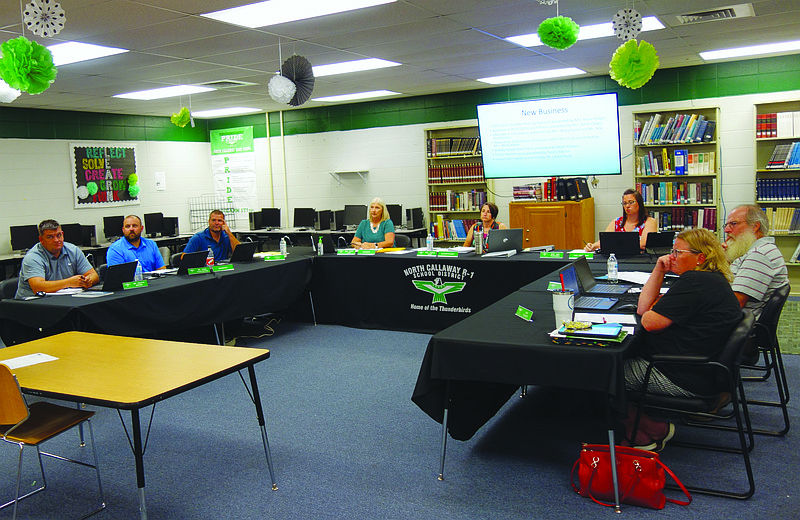KINGDOM CITY - North Callaway R-1 is weighing ways to bridge the gap between families who have internet access at home and families who don't.
When schools were forced to shut down in March due to the COVID-19 pandemic, high school principal Brian Jobe noted it put families without wifi at a disadvantage. Those families had to rely on paper packets and occasional phone calls with teachers, rather than regular video chat meetings and online work.
"When your teacher is pumping out online content there's a huge discrepancy," Jobe said. "With a paper packet, the parent has to be the teacher. The parents were very stressed - they're not trained in how to be teachers."
One potential solution came to the fore at Thursday night's Board of Education meeting. The district is contemplating partnering with "Kajeet SmartSpot," an internet hotspot provider, to provide at-home internet connectivity for families who can't afford it. HotSpots would only go out to families in case of another school closure, or to families that opted for a semester of online learning through Acellus. (Of the 60 or so families that signed up for distance learning, three lack internet access at home, Jobe said.)
Each device will cost the school between $33 and $65 per month, depending on the number of months and how many gigabytes of data per month the district opts for. The contract requires North Callaway to pay for a minimum of 20 devices.
According to Superintendent Nicky Kemp, the district can use some of the COVID-19-related funding they've received to offset costs.
"(We have) $16,000 that has to be used toward something like hotspots," Kemp said.
Another portion of COVID-19 funding is going toward making sure every student has access to an internet-capable device: the district is purchasing a number of Chromebooks that can be checked out by families as needed.
High school assistant principal Lance Foulk said Kajeet informed him 3 GB per month should be enough for students learning through Acellus, while 5 GB per month should suffice for the rest of the student body.
Unlike competing models, Kajeet hotspots have built-in filtering capabilities to prevent students from using them for anything but school work.
"These guys are the safest for students," Foulk said.
They can also work with multiple cell-phone providers - some areas of the district are only covered by AT&T or Verizon, but not both.
If the district is forced to close, Kajeet can have hotspots to the district in 10-14 days, Foulk said.
When school board members asked about setting up hot spots in parking lots and a local church, Jobe said that's not a viable long-term solution.
"It's unrealistic to expect a family to spend 3-6 hours a day in a church parking lot," he said.
School board president Sandy Lavy wondered if the district providing free internet access would disincentivize families from paying for their own.
According to assistant superintendent Niki Buschmann, that likely won't be a problem. Buschmann formerly worked at Gasconade County R-1, one of the districts already contracted with Kajeet. Because the devices prevent access to social media, Netflix and gaming - and also only allow school-approved devices to link with them - they're a poor substitute for a household internet subscription.
"When families see how locked down it is. I think it would be people with legitimate needs asking for those," Buschmann said.
Board members also discussed how to prioritize device access if need outstrips the number of devices available. According to Kemp, about 10 percent of the district's households lack internet access at home; the district will work to nail down the exact number early in the school year.
"We can start with the free and reduced lunch students first," school board member Amy Reinhart suggested.
No vote on the matter was taken Thursday evening.

